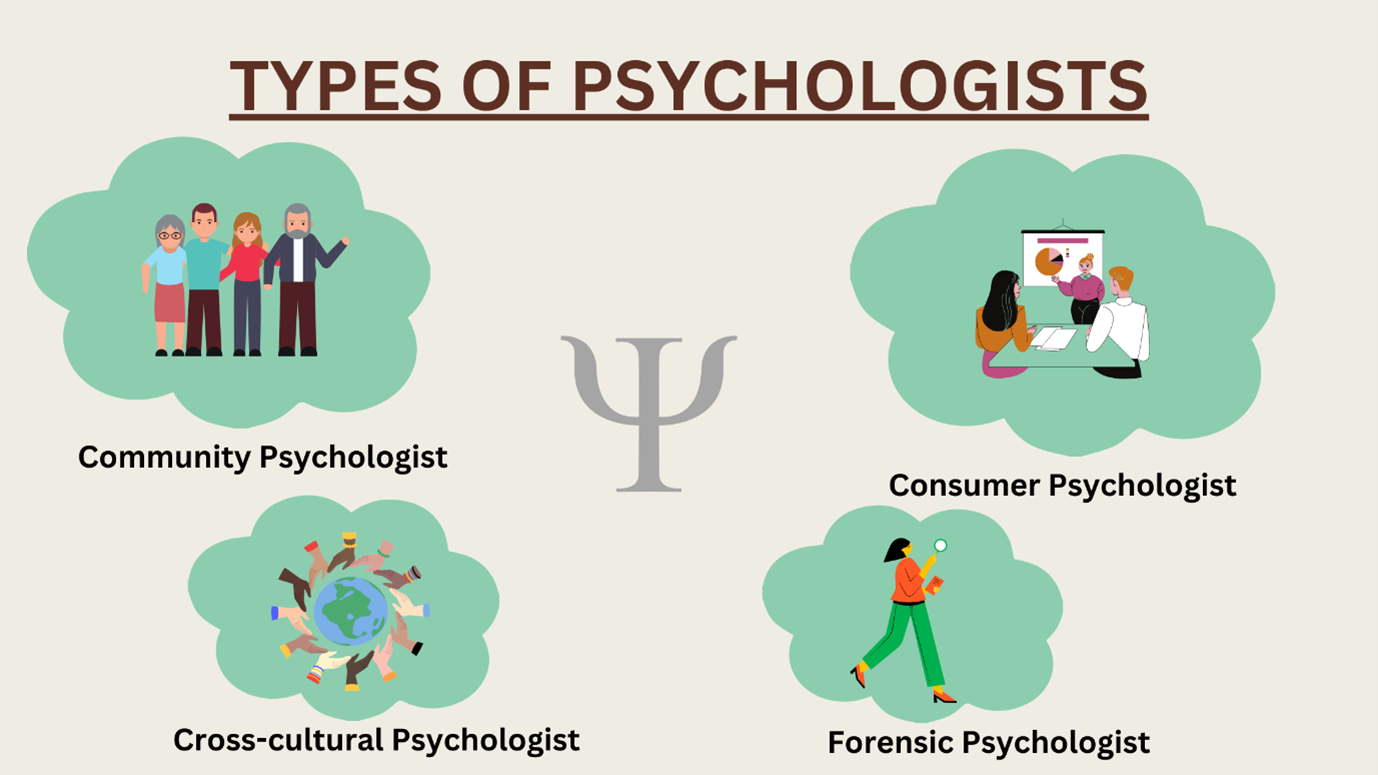Psych Treatment: A Comprehensive Overview to Strategies and Outcomes

Cognitive-Behavioral Therapy
Cognitive-Behavioral Treatment (CBT) is a commonly utilized psychotherapeutic strategy that concentrates on determining and changing inefficient reasoning and habits patterns. Created in the 1960s by Aaron T. Beck, CBT incorporates cognitive and behavioral theories to address numerous mental wellness problems, consisting of anxiety, anxiousness, and stress-related conditions. The property of CBT is that maladaptive thoughts add to psychological distress and maladaptive habits. By reorganizing these ideas, individuals can accomplish substantial enhancements in their psychological well-being and day-to-day functioning.
Methods such as cognitive restructuring, exposure therapy, and skill-building exercises are generally used. Cognitive restructuring includes difficult and altering unfavorable idea patterns, while exposure therapy intends to decrease worry and anxiety via progressive direct exposure to feared circumstances or things.
Evidence-based research study supports the efficacy of CBT for a variety of psychological disorders - Best Psychologist in Delhi. Its focus on skill acquisition and self-help techniques encourages clients to proceed development separately after therapy ends. The adaptability and effectiveness of CBT have actually made it a foundation in modern psychotherapeutic technique
Psychodynamic Strategies
Rooted in the very early concepts of Sigmund Freud, psychodynamic methods focus on discovering the unconscious mind and its impact on actions and feelings. These techniques intend to discover surprise thoughts and sensations that may be driving maladaptive behaviors and psychological distress. Central to this technique is the concept of inner dispute, usually coming from unsolved past experiences, especially those from childhood.
Therapists using psychodynamic techniques employ numerous essential approaches, consisting of totally free organization, where clients are motivated to talk freely to disclose subconscious material, and desire evaluation, which analyzes the hidden material of desires. In addition, the exploration of transference and countertransference characteristics within the therapeutic partnership is essential. These communications can provide insights right into the client's inner world and relational patterns.
Psychodynamic treatment is generally longer-term contrasted to various other methods, offering a deep and detailed understanding of the person's subconscious. Study indicates that it can be particularly effective for complicated mental health and wellness problems, such as character conditions and chronic anxiety. By promoting self-awareness and emotional insight, psychodynamic therapy seeks to bring unconscious material to consciousness, enabling people to attain lasting and meaningful change in their lives.
Humanistic Strategies
Structure on the structures laid by psychodynamic techniques, humanistic methods provide a distinct perspective focused on specific possible and self-actualization. Coming from in the mid-20th century, these methods prioritize the inherent benefits and development potential of individuals, highlighting an alternative view of human experience. Trick numbers such as Carl Rogers and Abraham Maslow have substantially influenced this therapeutic technique, which incorporates approaches like client-centered treatment and Gestalt treatment.
Client-centered therapy, established by Rogers, plays a pivotal duty in humanistic techniques. The specialist's role is even more of a facilitator than an authority, encouraging clients to harness their inner resources for recovery.
Gestalt therapy, another crucial humanistic method, emphasizes existing moment awareness and the assimilation of mind and body. By focusing on the "present moment," customers acquire better insight into their current emotions and behaviors. Methods such as role-playing and led visualization are often utilized to aid customers acquire a much deeper understanding of themselves, inevitably resulting in boosted self-awareness and fulfillment.
Integrative Therapies
Integrative treatments stand for a synthesis of numerous therapeutic methods customized to fulfill the unique requirements of each customer. This strategy recognizes the intricacy of human psychology visit this site right here and the multifaceted nature of mental health and wellness problems. By incorporating components from various schools of psychotherapy-- such as cognitive-behavioral therapy (CBT), psychodynamic treatment, and humanistic methods-- integrative treatments use an even more adaptable and holistic treatment paradigm.
Professionals of integrative treatment examine each customer's details demands, signs and symptoms, and individual background to devise a customized treatment strategy. This customized strategy boosts the possibility for therapeutic success by addressing the origin creates of emotional distress and advertising general wellness. Techniques may consist of mindfulness workouts, cognitive restructuring, and psychological processing, each selected to target various elements of the client's issues.
Additionally, integrative therapies emphasize the healing connection, checking out the client-therapist bond as an important element of effective therapy. This connection fosters an encouraging atmosphere where clients really feel safe to discover and address their concerns. The flexibility of integrative therapies makes them ideal for a broad variety of problems, including stress and anxiety, depression, injury, and interpersonal troubles, thus raising their applicability and efficiency in diverse scientific settings.

Gauging Therapy Outcomes
Examining the effectiveness of psychiatric therapy is essential for both customers and clinicians to make sure that the treatment is yielding the desired end results. To accomplish this, numerous methods and devices are employed to determine therapy outcomes methodically. Standardized evaluation tools, such as the Beck Anxiety Inventory (BDI) and the Generalized Anxiety Disorder 7 (GAD-7), supply quantitative data on signs and symptom seriousness and adjustments over time.
In enhancement to standard tools, qualitative techniques like customer self-reports and clinical interviews supply valuable insights right into the individual experiences and perceived development of customers. Routinely set up assessments, commonly at the beginning, omphalos, and end of treatment, aid in tracking the trajectory of improvement or identifying areas requiring change.
End result dimension is not limited to sign reduction; it likewise includes practical renovations in daily life, such as better interpersonal connections, boosted job productivity, and enhanced overall well-being. Modern improvements in electronic wellness have introduced mobile apps and online platforms that help with real-time monitoring and feedback, additionally refining home the assessment procedure.
Eventually, an extensive technique to measuring therapy results makes sure that restorative interventions are reliable, reliable, and customized to satisfy the private requirements of clients, thereby optimizing the total restorative experience.
Final Thought
Psychotherapy offers a complex selection of methods aimed at dealing with specific psychological health and wellness issues and enhancing total wellness. Cognitive-Behavioral Treatment and psychodynamic strategies target inefficient thoughts and subconscious influences, respectively. Humanistic strategies focus on individual development and self-actualization, while integrative treatments integrate several approaches for customized treatment strategies. Evaluating treatment outcomes via qualitative methods and standard assessments ensures a thorough understanding of efficiency, inevitably directing clients towards sustaining mental health and wellness renovations.
From the structured approach of Cognitive-Behavioral Therapy (CBT) to the deep exploration of the subconscious in psychodynamic treatment, each approach brings special benefits. Its focus special info on skill procurement and self-help strategies equips clients to continue development separately after therapy ends (Best Psychologist in Delhi). Key numbers such as Carl Rogers and Abraham Maslow have substantially influenced this healing approach, which incorporates approaches like client-centered treatment and Gestalt therapy
:max_bytes(150000):strip_icc()/81860243-56a793575f9b58b7d0ebd6a7.jpg)